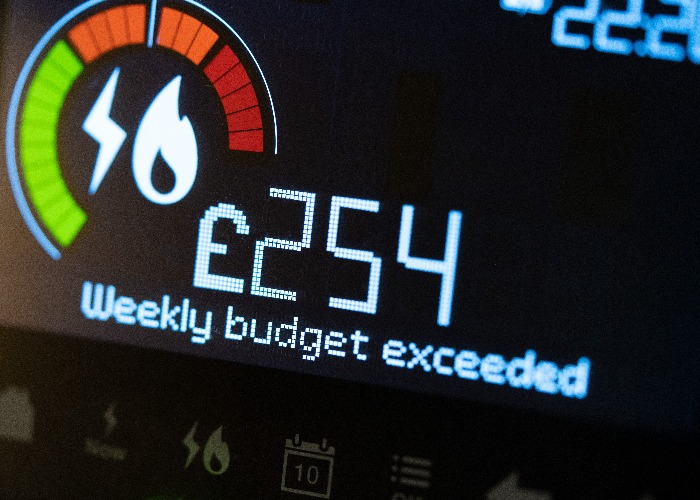Fixed energy tariffs: think carefully as wholesale energy prices set to tumble

With wholesale energy costs expected to plummet £400 below the Government's Price Guarantee in the coming months, households should think carefully before locking into a fixed-rate deal that looks cheap by today's standards.
Households have been warned that opting for a fixed energy tariff now could mean they end up spending hundreds more for their energy use over the next year or so.
Energy regulator Ofgem has launched a social media campaign, encouraging households to ‘Think Before You Fix’, noting that fixing now could mean you miss out on better-priced deals if prices fall.
It comes as fixed energy deals start to return to the market, but with forecasts suggesting that energy deals will become cheaper in the months ahead.
Beating the Energy Price Guarantee
OVO Energy was the first to launch a fixed energy tariff that delivers lower bills than those subject to deals protected by the Energy Price Guarantee.
The OVO deal is a one-year fixed tariff, and only open to existing customers. It would mean that households pay £2,275 for a year’s use, less than the £2,500 that same household would pay if on a deal from a rival supplier.
At a time when the size of our household bills are a big concern for all of us, the chance to cut one of our monthly outgoings is always going to be tempting.
But is now really the right time to sign up to a fixed energy package?
The role of the Energy Price Guarantee
First off, it’s absolutely crucial to understand that the Energy Price Guarantee is not a cap, even though it is often discussed in such terms by politicians and elements of the media.
The guarantee was introduced back when Liz Truss was Prime Minister, with the idea of limiting energy price hikes.
The Energy Price Guarantee freezes the price of the unit cost of gas and electricity on our energy deals, so while the size of your bill will still be determined by your actual use, you at least have some certainty over what that use may mean for the size of your bills.
The Energy Price Guarantee means that a typical household will pay around £2,500 for their energy a year, though again, this will vary depending on your actual use.
The guarantee was due to be increased in April, which would have taken that typical annual bill to £3,000, but in the Budget the Chancellor confirmed this price increase would be delayed by three months.
|
PROMOTION
|
||
|
Falling energy prices
The Energy Price Guarantee runs alongside the Energy Price Cap, which is set by Ofgem, the energy regulator.
The cap currently stands at £3,280 based on typical energy consumption, and will run from April to June, before being revised once more.
The price cap is set based on the wholesale markets ‒ in other words, what energy firms are having to pay for the gas and electricity we use.
And those wholesale market costs have been falling for some time.
The expectation is that they will continue to drop, to the point that come the summer the Energy Price Cap will be lower than the Energy Price Guarantee, essentially eliminating the need for the latter.
The latest forecast from Cornwall Insight, the energy market analysts, is that the cap will be set at £2,024 from July, and then £2,076 from October until December.
That’s a significant drop from what we are all paying at the moment, and precisely why the likes of Ofgem are encouraging people to think carefully before opting for a fixed tariff.
loveMONEY comment: fixing could be risky
It’s likely that plenty more suppliers will launch their own fixed tariffs in the weeks and months ahead, and that will add to the temptation to sign up for one.
The certainty provided by a fixed tariff would be welcome for any of us, given the way our money is stretched at the moment courtesy of rising bills for virtually everything else.
That said, it is worth thinking carefully before moving.
While nothing is guaranteed, it does appear that bills across the board are going to be falling from the summer onwards ‒ you may find that you are better off doing nothing than switching.
The fact that even the energy regulator is wary of people fixing too soon is telling.
Nothing is guaranteed, of course.
We have all seen how quickly things can move, particularly given the war in Ukraine ‒ which is a contributor to our higher energy bills ‒ remains ongoing.
However, the tide seems to be heading towards lower costs, primarily from the Energy Price Cap but also the likelihood of energy suppliers launching their own, even cheaper deals.
As a result, delaying a switch works out better overall, even if your energy bills for the next couple of months are a little higher than you’d pay with one of the first swathe of fixed tariffs launched.
Comments
Be the first to comment
Do you want to comment on this article? You need to be signed in for this feature
